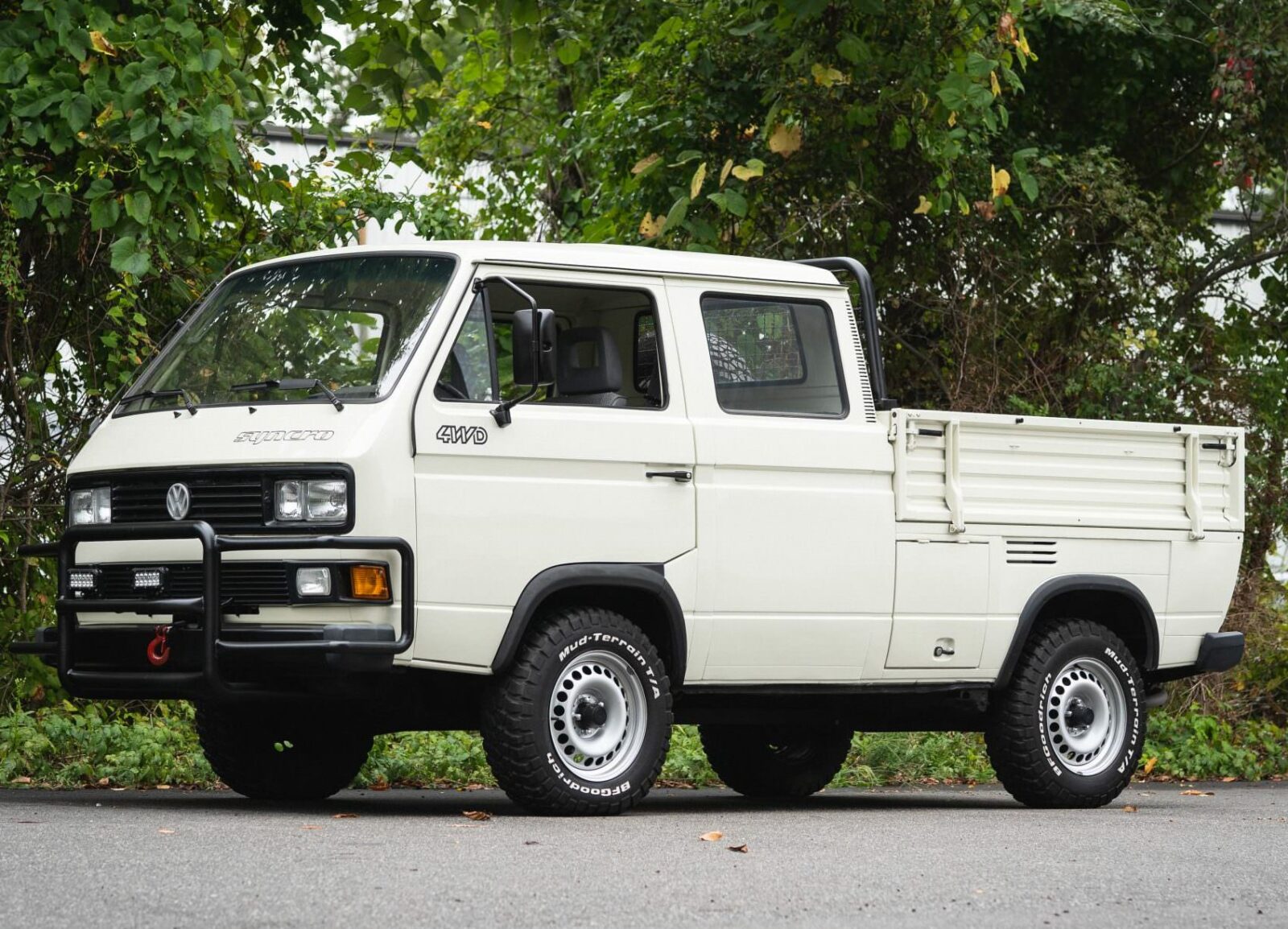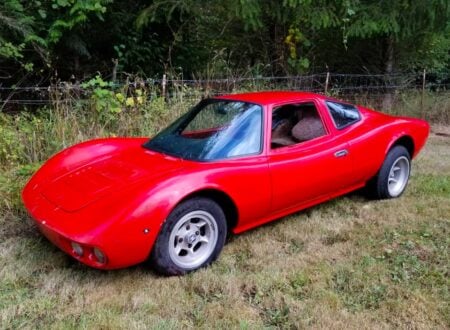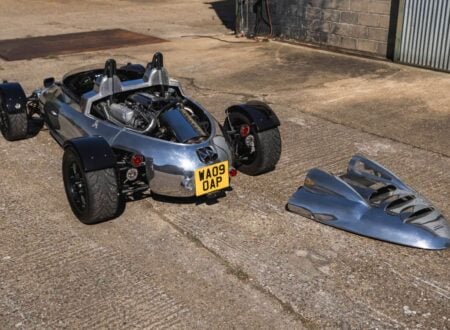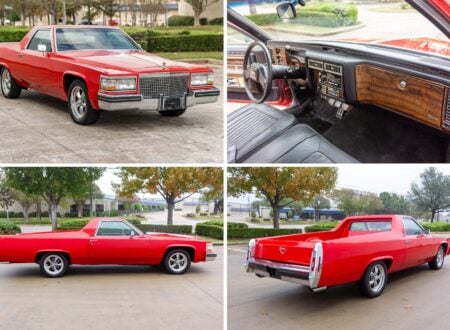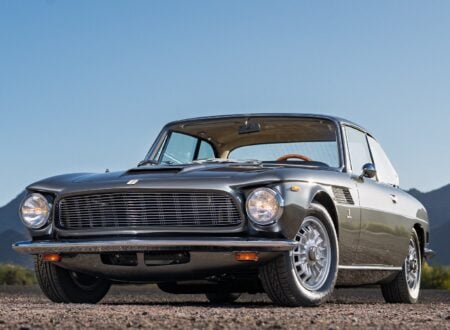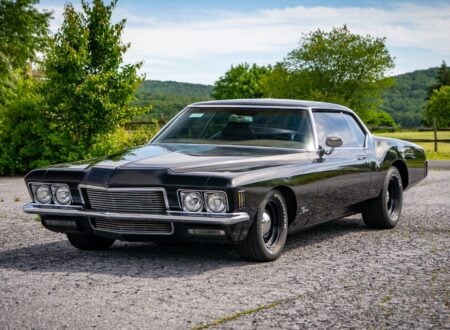This is a 1992 Volkswagen T3 Doka Transporter Syncro, it’s a four-wheel drive version of the wildly-popular VW van with a pickup truck rear end and a double cab front providing seating for five.
The “Syncro” series of four-wheel drive Volkswagen T3s first appeared in 1984, they proved too expensive for many, however years later they would become much sought after by enthusiasts and many were converted into all terrain campers.
Fast Facts – The VW T3 Doka Transporter Syncro
- The Syncro 4×4 version of the Volkswagen Type 2 (T3) was produced in limited numbers between 1984 and 1992. The four-wheel drive system was actually manufactured by Steyr-Daimler-Puch in Austria.
- VW engineers initially began experimenting with 4×4 versions of the earlier Type 2 (T2) van in the 1970s, completing five of them before the project was cancelled.
- The project was then reborn in the early 1980s for the new Type 2 (T3) van. A 4×4 drivetrain was adapted from the Ferguson Formula system, it was then refined by Steyr-Daimler-Puch and the conversions were completed by them in Austria.
- The Volkswagen T3 Doka Transporter Syncro you see here is a 1992 model, the final year of production, and it’s fitted with the desirable 2.1 liter flat-four engine, an upgrade over the earlier 1.9 liter unit.
The Volkswagen Syncro 4×4
The Volkswagen Type 2 Syncro was a vehicle that was a long time coming. During WWII VW had developed and built both the Type 86 Kommandeurwagen and the Type 128 Schwimmwagens – both of which had four-wheel drive systems.
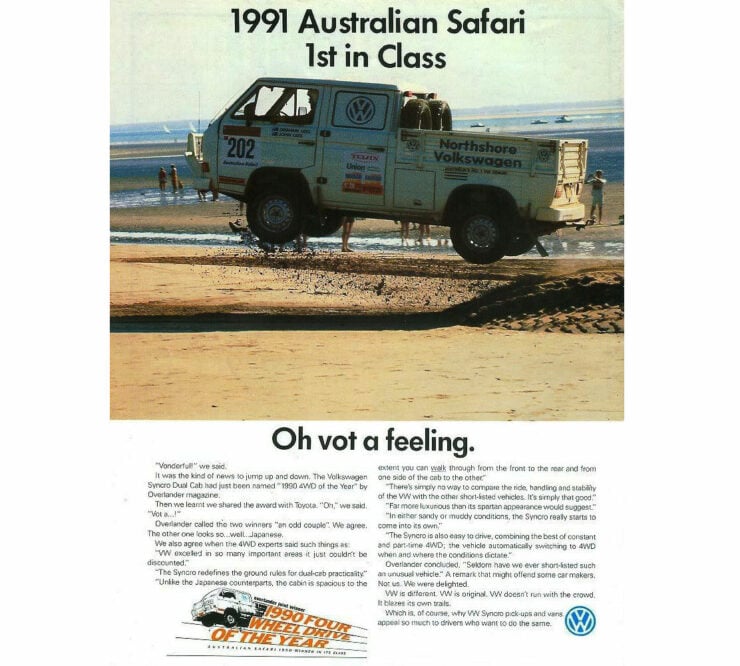

After the war there was a gap of decades between production VW 4x4s as company executives didn’t see the point in it, though two engineers at VW certainly did, and in the 1970s they set to work to create new four-wheel drive vehicles based on the then-current second generation Type 2 van.
Their names were Gustav Meyer, who was the head of VW light truck engineering, and Henning Duckstien who ran the truck testing department. Meyer and Duckstien both owned Type 2s and they loved taking them on expeditions to far flung corners of Africa and Europe – which is why the concept of 4×4 was so appealing.
They set to work developing a 4×4 Type 2 (T2) prototype and would build a total of five for testing before the bean counters shut the project down. This wasn’t to be the end of the Meyer-Duckstien story though, their work formed the foundation of what would become the Volkswagen Type 2 (T3) Syncro that was developed in the early 1980s and released in 1984.
The tried and tested Ferguson Formula-like system would be used on the production version, with a viscous coupling, the system was refined by the experts at Steyr-Daimler-Puch who had been building four-wheel drives like the Haflinger and the Pinzgauer for many years.
During the 1984 to 1992 production run 43,468 were produced in total over a number of different variants including single cab and double cab (doka) pickups, panel vans, minibuses, and campers.
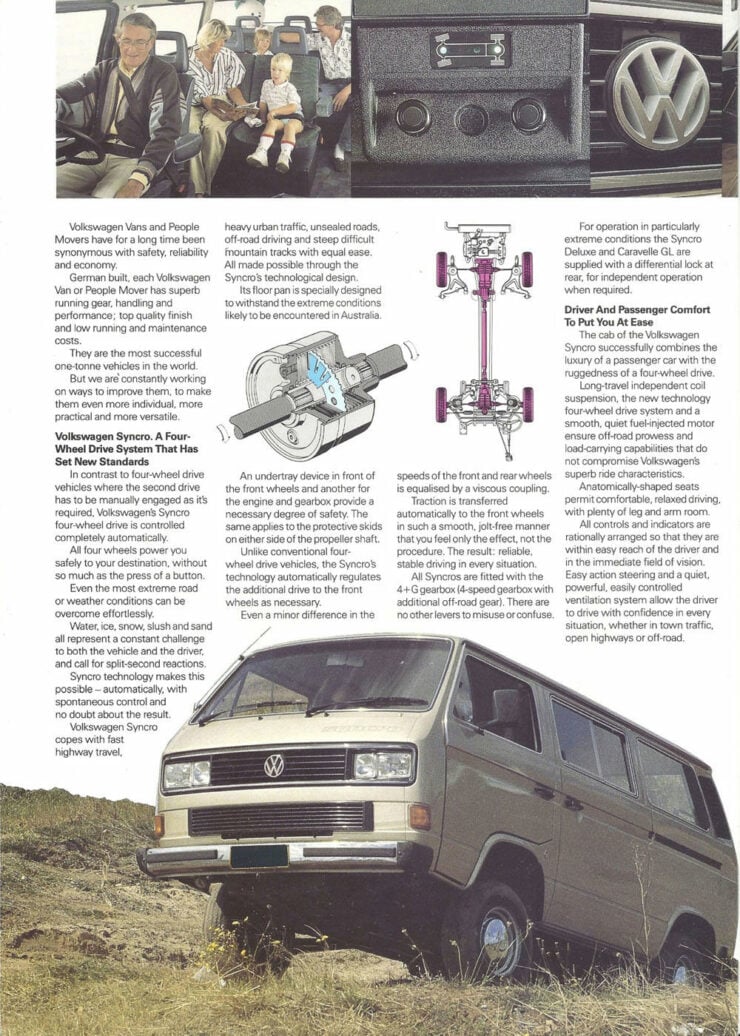

Syncros can be identified most easily by their elevated ride height, their oftentimes prominent “Syncro” decals, and their unusual 5-speed or 4+G gearbox that includes a very low “G” gear for off-road use, named for the German word “Gelände” or “Terrain.”
The 1992 VW T3 Doka Transporter Syncro Shown Here
The vehicle shown here is a Volkswagen Type 2 (T3) Transporter Syncro from 1992, it has the less-common double cab up front with he pickup truck rear and it’s finished in white over gray.
Power is provided by the 2.1 liter flat-four engine mounted in the rear, coupled to the 4+G gearbox and the Syncro all-wheel drive system.
The example has been fitted with a brush guard, a bed rack, hinged bed sides, LED driving lights, a cabin heater, 16″ steel wheels, and it has a more modern Pioneer stereo.
It’s now being offered for sale out of West Hartford, Connecticut. It has 39,000 kilometers (~24,000 miles) on the odometer and you can visit the listing here on Bring a Trailer if you’d like to read more or register to bid.
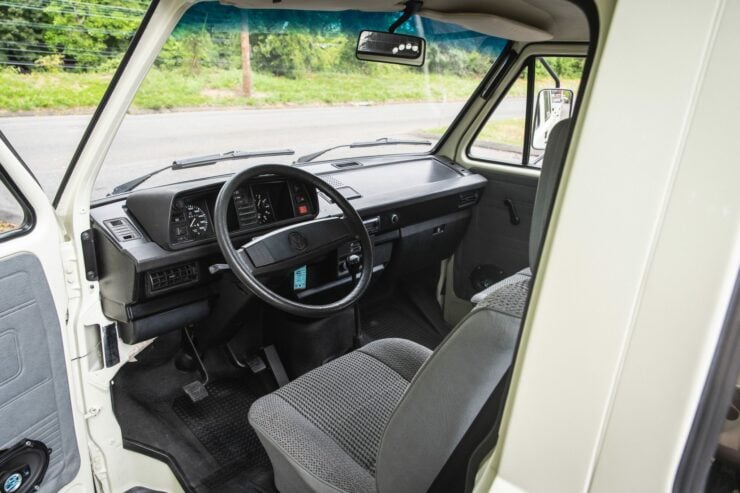
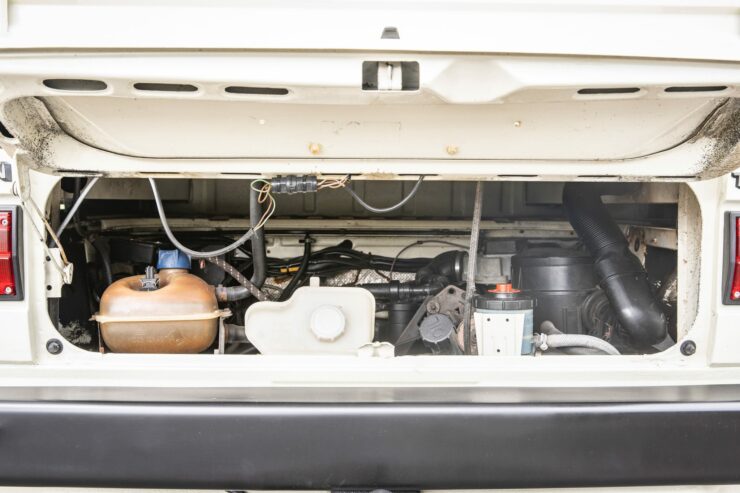
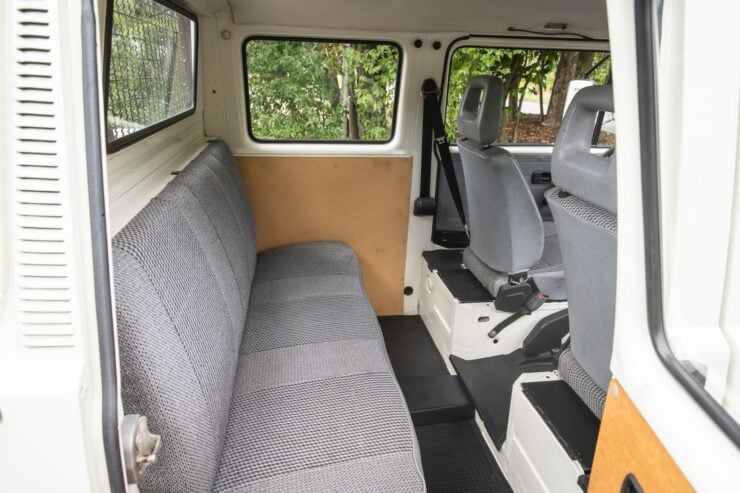
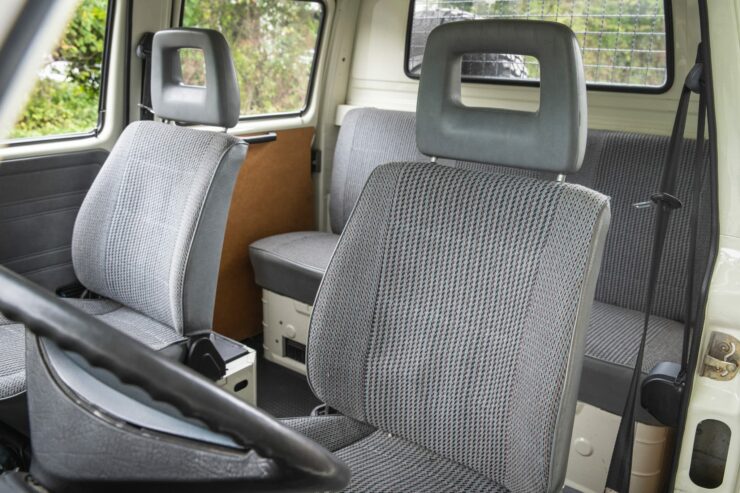
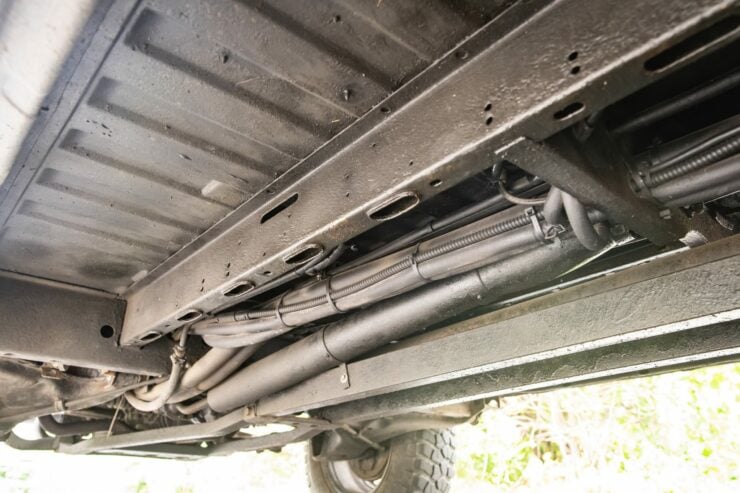
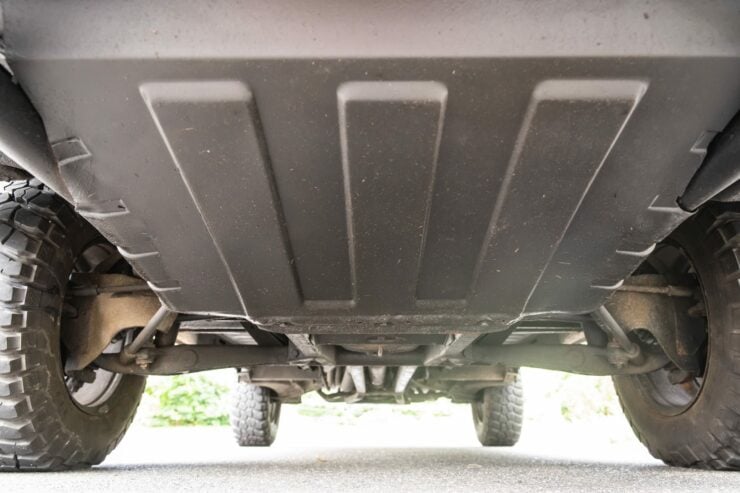
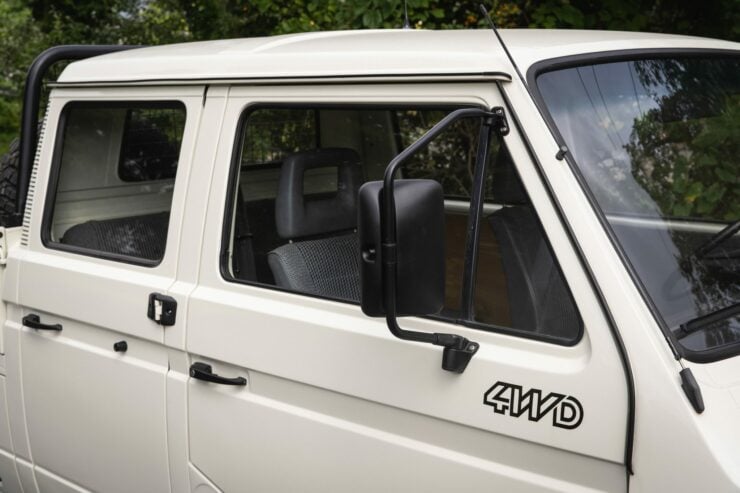
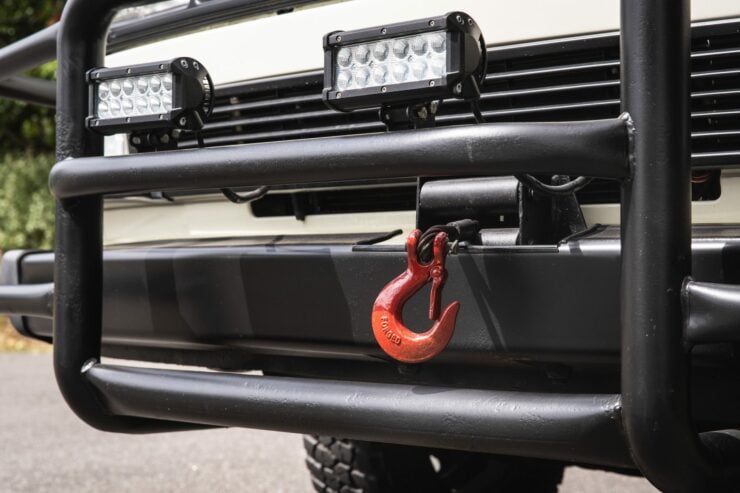
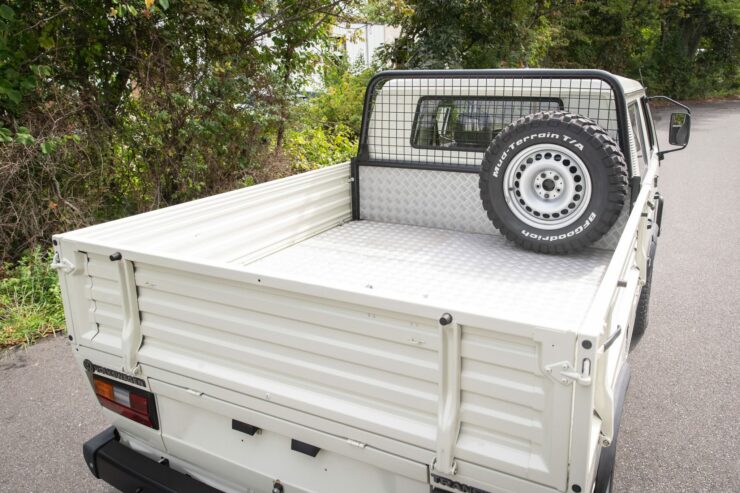
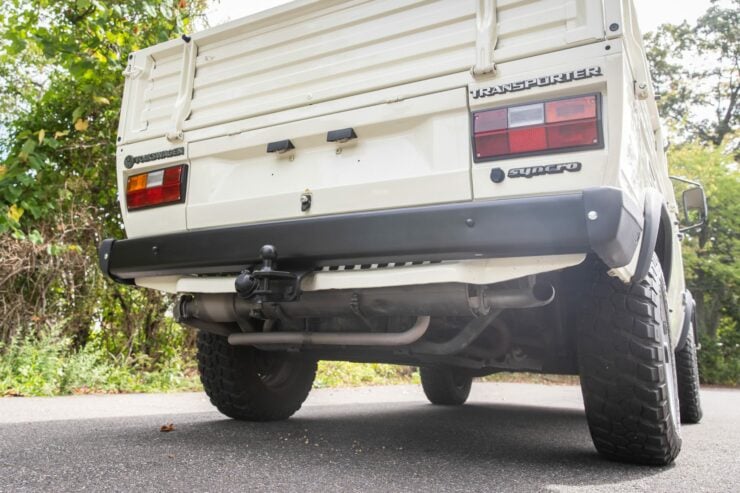
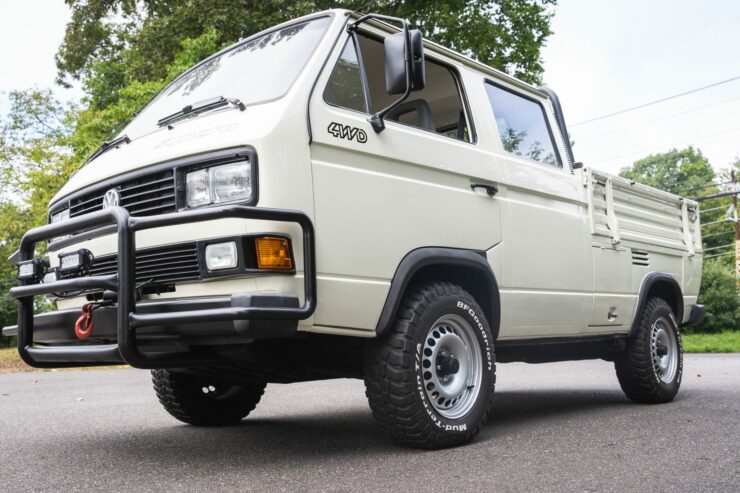


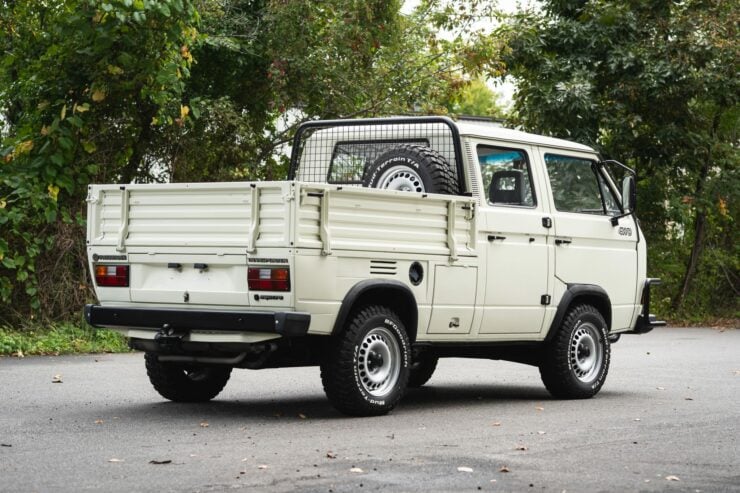
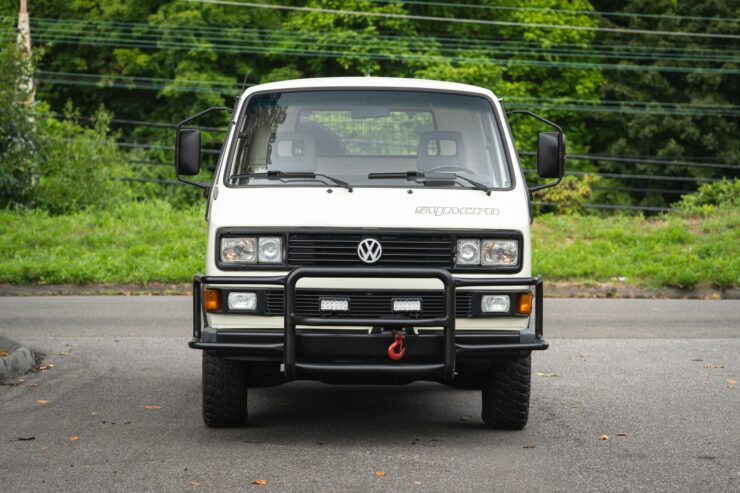
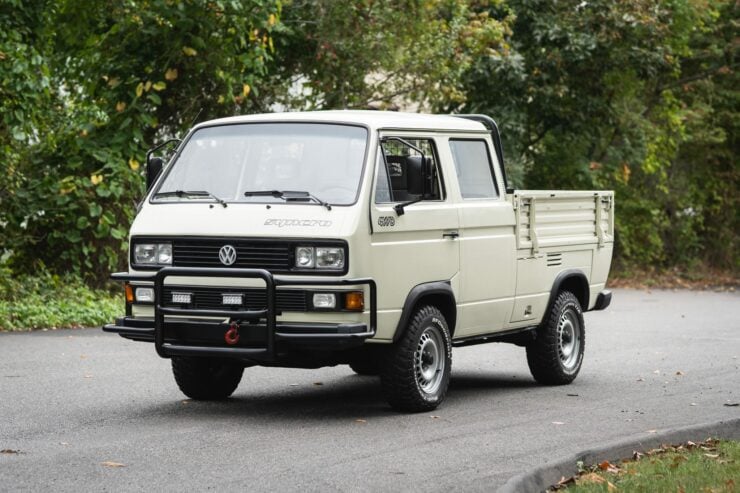
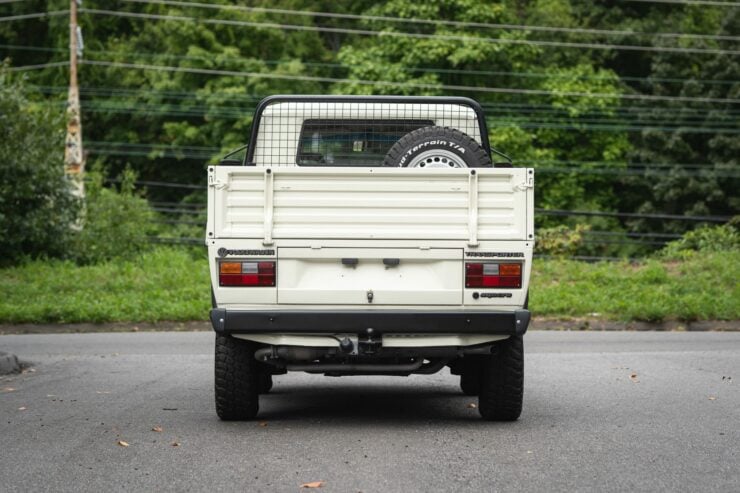

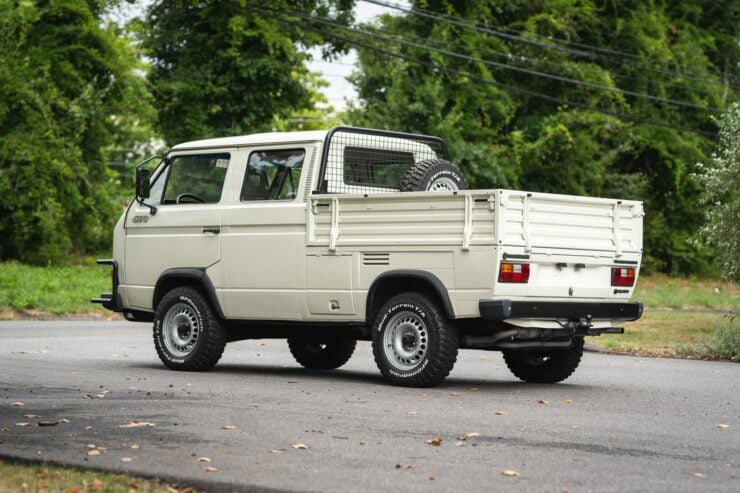
Images courtesy of Bring a Trailer

